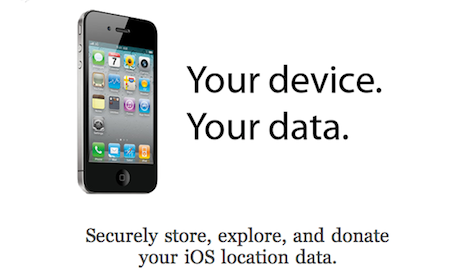Apple may have fixed the iPhone’s location tracking issues with the recent iOS 4.3.3 update, but The New York Times’ Research and Development Lab thinks this location data is still valuable in the way it provides users and researchers an historical archive of devices’ cellular triangulation points and WiFi hotspot databases. The NYT Labs, the same folks behind innovative iPad news reader News.me, have developed and released a web application called OpenPaths that allows iPhone users to register and anonymously share their location database. The web tool, available here, is touted as a way to “securely store, explore, and donate your iOS location data”, Nick Bilton at The New York Times Bits blog reports. While it’s unclear how the web app works with the latest iOS software update (which stops iOS devices from backing up the location database to a computer, but still keeps an unencrypted copy stored on device), OpenPaths apparently finds a way to obtain this location data and reorganize it in a beautiful interface that also enables you to navigate maps, set specific times of a day, and browse by date.
People who participate in the project are asked to upload location information from their phone, which is then made anonymous and added to a database with the data from every other upload. People can then browse their own location data on an interactive map. At a later date researchers will be able request access to the collection of location uploads.
As for privacy concerns in regards to OpenPaths, the website’s homepage explains how the system works:
Our upload system is completely anonymous. We store your location data separately from your user profile. It is only with your express permission, combined with a unique passcode that only you know and that openpaths does not store, that we release your data to whom you approve. You will always have control over how much of your information is shared.
The main focus of OpenPaths is that of enabling you to donate your data to researchers around the world working on problems like “disaster preparedness, traffic flow, urban planning, and disease transmission.” You can choose to grant researchers access to portions of your data, or skip the process entirely and keep everything for yourself for personal purposes. It’ll be interesting to see whether this NYT Labs project will gain traction in the next weeks, and if future iOS updates will break its functionality with further location database encryption. In the meantime, you can sign up for OpenPaths here.


